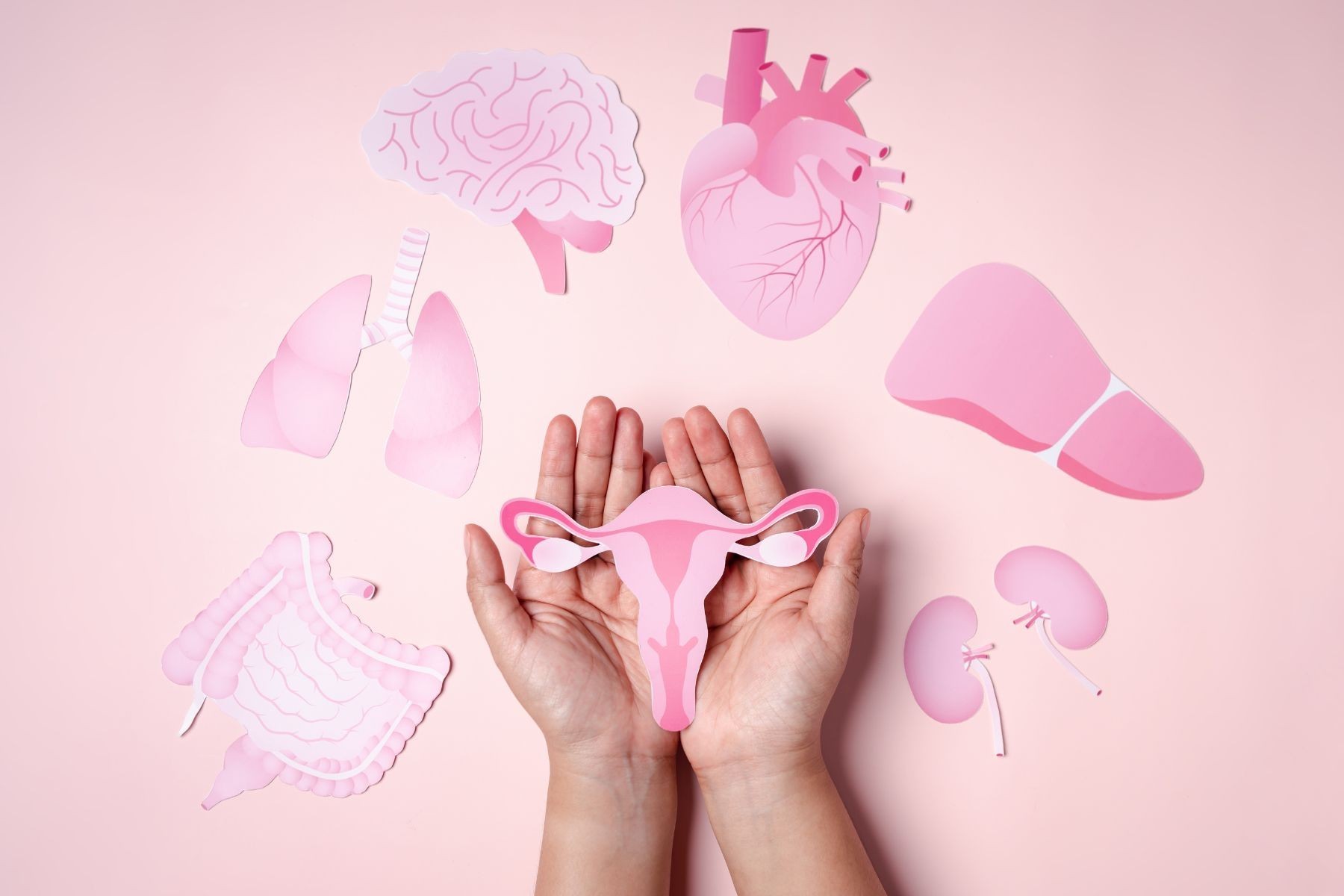Wellness Through Menopause: Expert Strategies for Mind & Body
Menopause is a journey all women experience, but let’s be honest, it can be a bit of a wild ride! Hot flushes, sleepless nights, wobbling confidence, and unpredictable mood swings can feel a bit overwhelming.
But the good news is that menopause is not the end of your story. In fact, many women discover it’s the beginning of a really positive new chapter. While the biology of shifting hormones is real, so is something psychologists call menopausal zest - a surge of energy, clarity and purpose that often arrives post-menopause.
In time for World Menopause Day on 18th October, Glo's resident Nutritional Therapist Sara Jubb has written about how the right blend of nutrition, lifestyle practices, and (if it’s right for you) medical support like HRT can help you navigate the bumps and allow you to emerge with all the energy you need to flourish in the next life stage.
Nutrition for Menopause
From a naturopathic perspective, food isn’t just fuel, it’s information. Every bite you take sends signals to your body, influencing your hormones, your energy, your mood, and even influencing how well you sleep.
Here are some practical, everyday strategies that can make a real difference:
- Prioritise protein - Protein stabilises blood sugar, maintains muscle mass and keeps you feeling full and satisfied. Think: eggs for breakfast, lentil soups for lunch, grilled salmon or tofu for dinner.
- Eat your five (colours) a day - Each coloured pigment found in plant foods provides a different mix of antioxidants and phytonutrients. Fill your plate like a rainbow: berries, greens, sweet potatoes, peppers. I recommend that you try to eat at least five different colours every day.
- Fill up on phytoestrogens – These are plant compounds that can mimic or modulate oestrogen in the body, which can be particularly supportive during menopause. Some examples of foods rich in phytoestrogens include pulses and beans; seeds such as flaxseeds, sesame seeds and sunflower seeds; oats; tofu and miso; and vegetables from the cabbage family like kale, Brussels sprouts and broccoli.
- Bone-building nutrients – Make sure to get your calcium from leafy greens, tahini and yoghurt. Also important for bone health post-menopause is vitamin D from sunlight or a supplement, if needed.
- Healthy fats for brain and heart health - Omega-3s from fish, walnuts, and chia seeds support cognition and reduce inflammation. Olive oil and avocado are also great choices.
- Balance your blood sugar levels - High-sugar snacks and alcohol can increase the frequency and severity of hot flushes and can disrupt your sleep. Try to include protein and good fats with every meal and snack, and replace refined carbs with complex carbohydrates from vegetables and whole grains.
- Create rhythm with your mealtimes – Try to eat your breakfast, lunch and dinner at about the same time everyday and ideally don’t snack between meals. These micro-fasts will allow for repair and recovery of skin, joints and muscles and support your gut, energy, mood, sleep and weight management
Remember, though, not to become overly obsessed with what you eat. You don't need to give up all your favourite foods, but starting to notice how your body reacts to certain foods gives you the wisdom you need to make the best choices for you.
Movement for menopause
From perimenopause onwards, looking after your body should probably be your number one occupation! Movement isn’t about punishing yourself or trying to shrink your body; it’s about creating energy, protecting your bones and staying flexible and youthful.
Ideally, aim for:
- 2–3 sessions a week with weights or resistance bands to support muscle and bone health
- Some brisk walking, cycling or dancing most days to support your heart health and lift your mood
- Some yoga or Pilates to improve your flexibility and balance
But any movement is better than no movement, so find things that bring you joy - gardening, dog walks and kitchen discos all count!
Sleep for menopause
Sleep can feel elusive during menopause, but it’s also one of the most powerful healers, as your body does most of its repair and restoration work while you are asleep at night.
Some simple shifts that help with sleep include:
- Keeping a regular bedtime and wake-up rhythm
- Getting out in natural daylight first thing in the morning can help to set your circadian rhythms, which prime your body to sleep at night
- Avoid caffeine after midday
- Try a calming bedtime ritual such as some gentle stretches, journalling or taking a warm bath
- Making your bedroom cool, dark and tech-free
But if you do have a bad night, try not to worry. An occasional restless night won’t do you too much harm.
Managing stress during menopause
Hormonal shifts can make the nervous system more sensitive, which is why we often feel more stressed and less able to cope. Supporting your mental and emotional wellbeing is as important as supporting your bones or heart.
Try to build in some practices every day that can bring you moments of calm, such as
- A few minutes of slow, deep breathing can flip the switch from stress to calm
- Short meditations, journalling or mindful walks in nature
- Sharing how you are feeling with friends that you trust
- Finding something every day to make you laugh out loud!
These practices aren’t luxuries; they are essentials for building resilience.
A word on HRT
Hormone replacement therapy (HRT) can be a game-changer for many women. It can help address hot flushes, bone loss and even mood shifts. But lifestyle practices still matter, whether you take HRT or not.
While HRT addresses the immediate hormonal changes, nutrition, movement, sleep, and mindfulness will build the long-term foundations for vibrant health. They complement each other beautifully actuall,y good nutrition and lifestyle practices have been shown to improve the effectiveness of HRT.
Thriving in menopause
With the right support, menopause can be a powerful turning point in your life. Your body is asking for deeper nourishment, your mind is ready for honesty and clarity, and your spirit is eager for growth.
Start small. Add colour to your plate, move your body every day, feel your feelings, carve out time for rest, and keep your heart and your mind open to possibilities.
Written by Sara Jubb
About Sara
Sara is a Nutritional Therapist, Naturopath and Coach with a background in magazine and national newspaper publishing. She has delivered corporate wellbeing programmes, spoken publicly on health and personal development, and coached individuals towards business success, career growth, and improved wellbeing. A lifelong learner, she enjoys Pilates, nature walks, batch cooking and daily meditation.
Her professional qualifications include EMCC Global Accreditation (Practitioner level), Level 5 Coaching Diploma, Diplomas in Nutritional Therapy and Naturopathy, Mental Health First Aid, and she is also a qualified Pilates Matwork instructor.





